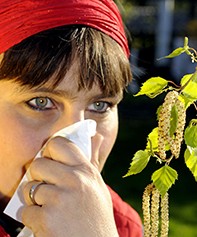Peer Reviewed
Feature Article Immunology and allergy
Hay fever – an underappreciated and chronic disease
Abstract
Allergic rhinitis continues to be a significant chronic disease that affects younger, usually healthier people, with considerable impacts on school performance and work productivity. Symptom-directed treatment is usually sufficient but specific immunotherapy should be considered in severely affected patients.
Correction
A correction for this article was published in the November 2015 issue of Medicine Today. The full text PDF for this article (see link above) has been corrected.
Key Points
- The prevalence of allergic rhinitis has increased more than 10-fold in the past century.
- Allergic rhinitis is a significant chronic disease that affects the younger, usually more healthy population.
- Allergic rhinitis significantly affects quality of life and impairs work performance.
- Inhaled airborne grass pollens are the major cause of hay fever.
- Effective therapies are available, including antihistamines and intranasal corticosteroids.
- Immunotherapy is also effective treatment for more severely affected patients.
Picture credit: © Zoonar GmbH/Alamy/Diomedia.com
Purchase the PDF version of this article
Already a subscriber? Login here.

